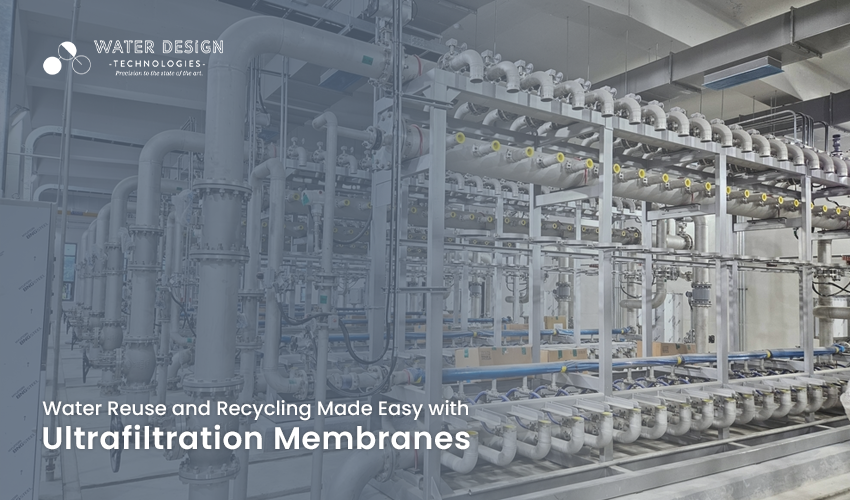Water reuse and recycling have become crucial aspects of sustainable water management, particularly in regions facing water scarcity and environmental challenges. In this context, ultrafiltration membranes play a significant role in facilitating the reuse of water by effectively removing impurities and contaminants from wastewater. This article explores how ultrafiltration membranes make water reuse and recycling easy, focusing on their application in Gujarat, India.
Understanding Ultrafiltration Membranes
Ultrafiltration membranes are advanced filtration systems designed to separate suspended solids, bacteria, and other pathogens from water through a physical barrier with precise pore sizes. These membranes typically consist of polymer-based materials with pore sizes ranging from 0.01 to 0.1 micrometers. The module design of ultrafiltration membranes allows for efficient water filtration while retaining essential minerals and nutrients.
Role of Ultrafiltration Membranes in Water Reuse
The filtration process in ultrafiltration membranes involves the removal of suspended solids, bacteria, and viruses, thereby producing high-quality treated water suitable for various applications. By effectively removing contaminants, ultrafiltration membranes contribute to improving water quality and reducing the risk of waterborne diseases. Additionally, the use of the ultrafiltration System promotes environmental sustainability by minimizing water wastage and conserving natural resources.
Applications of Ultrafiltration Membrane Systems
Ultrafiltration membrane systems find diverse applications across different sectors, including industrial, municipal, and residential settings. In industrial water recycling, these systems are employed to treat wastewater generated from manufacturing processes, ensuring compliance with regulatory standards and enabling the safe discharge or reuse of treated water. Municipal water treatment facilities utilize UF membranes to purify wastewater for reuse for irrigation or non-potable purposes, thereby reducing the burden on freshwater sources.
Ultrafiltration Membrane Technology in Gujarat
In Gujarat, India, where water scarcity is a pressing issue, the adoption of UF membrane systems has gained momentum in recent years. Water treatment plants across the region have implemented these advanced technologies to enhance the efficiency and effectiveness of wastewater treatment processes. Case studies and success stories highlight the successful integration of ultrafiltration membrane systems in various industrial, municipal, and residential projects, underscoring their role in addressing water challenges in Gujarat.
Conclusion
Ultrafiltration membranes from UF plants offer a reliable and sustainable solution for water reuse and recycling, contributing to the conservation and management of water resources. With their advanced filtration capabilities and versatility, these membrane systems play a crucial role in ensuring access to clean and safe water for communities, industries, and ecosystems. As the demand for water reuse continues to grow, the adoption of ultrafiltration membrane technology is poised to expand, driving innovation and sustainability in water management practices.


